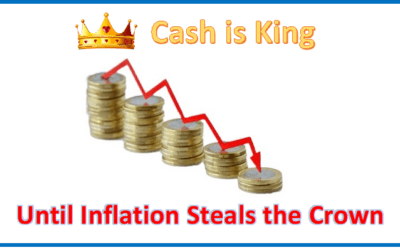The last 16 months have been very volatile for equity investors, with significant falls in January, June and September of 2022, offset by gradual recoveries in the other months of the year. More recently, bank failures in the US and Europe have led to another bout of market volatility. Bringing inflation down by raising interest rates was never going to be easy and is likely to be met with an economic slowdown. Expect more periods of volatility ahead. But in many ways the swings and roundabouts of the last year and a half have reinforced the importance of sticking to a long term plan.
Inflation and how central banks have dealt with it has been a central theme for markets and will continue to be for some time. Since the start of January this year markets have been enjoying a recovery from the negative returns of 2022, as inflation data continues to show that inflation peaked late last year and is now coming down. Markets believed that the central banks have done their job and can now pause or even end the onslaught of rate rises. But in March a series of bank failures in the US and Europe and the threat of contagion led to a new bout of volatility.
The RBA raised rates by 25 bps (0.25%) on the 8 of February and again on the 8 March to bring the Australian official cash rate to 3.6%. The closely watched US cash rates were also raised by 25bps on the 1 of February, and the Federal Reserve pressed ahead with another 25 bps at their most recent meeting on March 22, setting a new target range of 4.75% to 5%, the highest level since 2007. While most economists were predicting this latest rate rise by the Fed, it surprised many as it came on the heels of a collapse of several regional banks in the US and the global Swiss bank Credit Suisse.
The trigger for the American banking panic was not the February rate increase, but the Fed Chairmans testimony to Congress on the 9th of March that officials are likely to take rates higher than previously anticipated and could move at a faster pace if needed. The futures market immediately repriced the peak interest rate to be significantly higher, which caused bond prices to crash. Silicon Valley Bank was the first to go because more than half of its assets are in bonds, and the fall in their value after Powell’s congressional appearance made it insolvent.
Fresh turmoil at Credit Suisse Group days after the collapse of SVB spurred a frantic rush for safety, evoking memories of the GFC. Shares in Credit Suisse, which was already battling to recover from a string of scandals that had undermined the confidence of investors and clients, fell to a new low. Swiss authorities stepped in and allowed the larger Swiss bank UBS to buy its smaller rival in an effort to avoid further market-shaking turmoil in global banking.
Unsurprisingly, volatility gripped global markets. Yields on bonds fell dramatically as investors were speculating the turmoil will keep major central banks from pursuing big rate hikes. Stocks closed the day down but also staged a recovery, thanks in large part to the Swiss government stepping in.
The job of central banks has gotten a lot tougher of late with the fight against inflation now bumping up against fears of exacerbating fallout from recent bank closures. The US Federal Reserve boosted interest rates by a quarter percentage point at its March meeting and conceded it can’t be certain of the economic outlook. The bond market seems to be saying that, either way, that long-predicted recession will finally happen this year.
The collapse of the banks does not necessarily mean the world will be plunged into recession. When interest rates rise as rapidly and as high as they have then it’s not surprising that something will break – the only question is what and when. It’s fair to say that we are now at the pointy end of the hiking process.
Policymakers face a balancing act in the months ahead, one that could carry significant implications for economic growth, inflation, and investment returns. Their jobs won’t be easy. Investors, meanwhile, may find their discipline challenged by market volatility.
Our message for investors is the same as always: Maintain perspective, tune out the day-to-day noise that can lead to impulsive decisions, be true to your goals, and put your faith in a history that has rewarded those who embrace the long term. The market volatility over the past 18 months is not unusual and is a result of normalising interest rates and, for many investors, their first experience with inflation.
History has shown that investors who change their portfolios in response to market conditions usually come out worse than they would have by staying disciplined and sticking with the portfolio that was designed to meet their goals. When it comes to investing don’t do something, just sit there.
Dr Steve Garth
March 2023


